Filter by
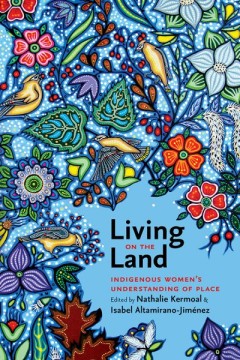
Living on the Land Indigenous Women's Understanding of Place
An extensive body of literature on Indigenous knowledge and ways of knowing has been written since the 1980s. This research has for the most part been conducted by scholars operating within Western epistemological frameworks that tend not only to deny the subjectivity of knowledge but also to privilege masculine authority. As a result, the information gathered predominantly reflects the types o…
- Edition
- -
- ISBN/ISSN
- 9781771990417.01
- Collation
- -
- Series Title
- -
- Call Number
- 228 pages
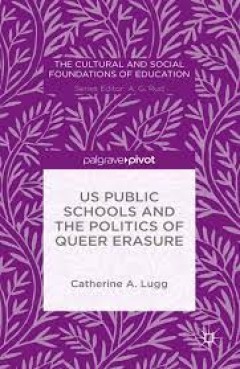
US Public Schools and the Politics of Queer Erasure
This book presents a history of queer erasure in the US public school system, from the 1920s up until today. By focusing on specific events as well as the context in which they occurred, Lugg presents a way forward in improving school policies for both queer youth and queer adults.
- Edition
- -
- ISBN/ISSN
- 978-1-137-53526-9
- Collation
- -
- Series Title
- -
- Call Number
- -
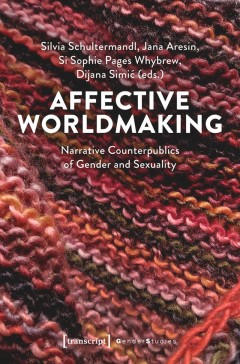
Affective Worldmaking : Narrative Counterpublics of Gender and Sexuality
What makes up a public, what governs dominant discourses, and in which ways can counterpublics be created through narrative? This edited collection brings together essays on affect and narrative theory with a focus on the topics of gender and sexuality. It explores the power of narrative in literature, film, art, performance, and mass media, the construction of subjectivities of gender and sexu…
- Edition
- -
- ISBN/ISSN
- 9783839461419
- Collation
- 238 halaman
- Series Title
- Gender Studies
- Call Number
- 305 AFF
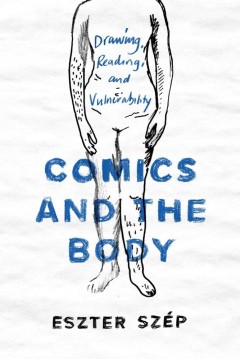
Comics and the Body : Drawing, Reading, and Vulnerability
Eszter Szép’s Comics and the Body is the first book to examine the roles of the body in both drawing and reading comics within a single framework. With an explicit emphasis on the ethical dimensions of bodily vulnerability, Szép takes her place at the forefront of scholars examining comics as embodied experiences, pushing this line of inquiry into bold new territory. Focusing on graphic aut…
- Edition
- -
- ISBN/ISSN
- 9780814214541
- Collation
- -
- Series Title
- -
- Call Number
- 741.5 Sze c

Feminist Existentialism, Biopolitics, and Critical Phenomenology in a Time of…
This book explores the personal value of healthy behavior, arguing that our modern tendency to praise or blame individuals for their health is politically and economically motivated and has reinforced growing health disparities between the wealthy and poor under the guise of individual responsibility. We are awash in concerns about the state of our health and recommendations about how to improv…
- Edition
- -
- ISBN/ISSN
- 9781000480610
- Collation
- -
- Series Title
- -
- Call Number
- -
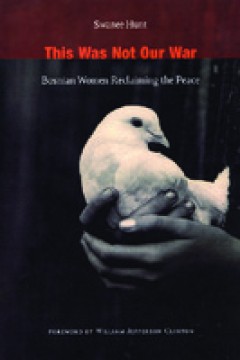
This Was Not Our War
"Replacing tyranny with justice, healing deep scars, exchanging hatred for hope . . . the women in This Was Not Our War teach us how."—William Jefferson Clinton This Was Not Our War shares amazing first-person accounts of twenty-six Bosnian women who are reconstructing their society following years of devastating warfare. A university student working to resettle refugees, a paramedic who foun…
- Edition
- -
- ISBN/ISSN
- 9780822333555
- Collation
- -
- Series Title
- -
- Call Number
- -
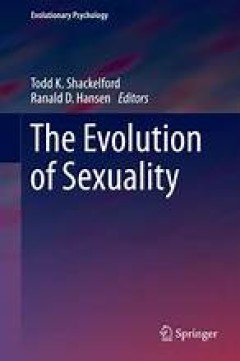
The Evolution of Sexuality
Attraction, mating, reproduction: it is a given that as a species, human beings are concerned with sex. And whether the study compares sexual behaviors of men and women or considers the proportions between nature and nurture, most roads lead back to our distant ancestors and/or our fellow animals. The Evolution of Sexuality collects stimulating new empirical findings and theoretical concepts…
- Edition
- 1
- ISBN/ISSN
- 978-3-319-09384-0
- Collation
- XX, 280, 7 b/w illustrations, 5 illustrations in colour
- Series Title
- Evolutionary Psychology
- Call Number
- -

The Queen of American Agriculture A Biography of Virginia Claypool Meredith
Virginia Claypool Meredith's role in directly managing the affairs of a large and prosperous farm in east-central Indiana opened doors that were often closed to women in late nineteenth century America. Her status allowed her to campaign for the education of women, in general, and rural women, in particular. While striving to change society's expectations for women, she also gave voice to the i…
- Edition
- -
- ISBN/ISSN
- 9781557539274
- Collation
- -
- Series Title
- -
- Call Number
- -
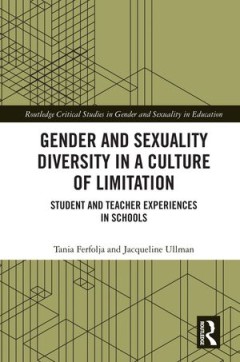
Gender and Sexuality Diversity in a Culture of Limitation : Student and Teach…
Gender and Sexuality Diversity in a Culture of Limitation provides an outstanding and insightful critique of the ways that contemporary education is impacted by a range of political, social and cultural influences that inform the approaches that schools take in relation to gender and sexuality diversity. By applying feminist poststructural and Foucauldian frameworks, the book examines the ongoi…
- Edition
- -
- ISBN/ISSN
- 9781351666046
- Collation
- -
- Series Title
- -
- Call Number
- 305 FER g
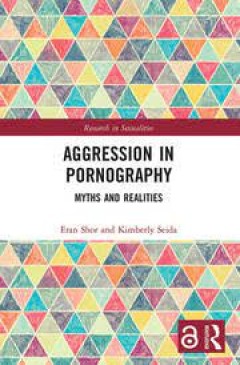
Aggression in Pornography Myths and Realities
Aggression in Pornography focusses on the issue of violence in mainstream pornography and examines what we know, what we think we know, and what are some surprising research findings and insights about the place of violence within pornography today. The authors first review the modern pornography industry, theoretical claims about pornography as violence, and the ways in which aggression has be…
- Edition
- -
- ISBN/ISSN
- 9780429276125
- Collation
- -
- Series Title
- -
- Call Number
- -
 Computer Science, Information & General Works
Computer Science, Information & General Works  Philosophy & Psychology
Philosophy & Psychology  Religion
Religion  Social Sciences
Social Sciences  Language
Language  Pure Science
Pure Science  Applied Sciences
Applied Sciences  Art & Recreation
Art & Recreation  Literature
Literature  History & Geography
History & Geography